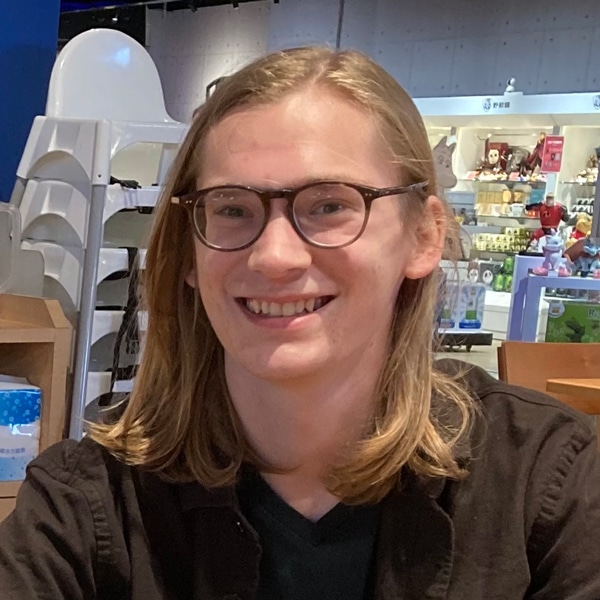Storytelling to Build Community: 2023 Peace Fellows Hold Speak Your Peace Workshop
Storytelling serves as an important medium for many Chicago Peace Fellows to raise awareness and promote solutions to problems that they face in their community. On October 21, the 2023 Chicago Peace Fellows hosted the Speak Your Peace workshop, dedicated to building power and community through inter-generational mixed-media storytelling. The event was held at the Chicago Center for Arts and Technology (CHICAT) on the West Side of Chicago. Peace Fellows on the Speak Your Peace team included: Nachelle Pugh, Antwan McHenry, Kanesha Walker Amaro, Carlil Pittman, Devonta Boston, Alexandra Auguste, Zahra Glenda Baker, Diane Deaderick DeMarta, Ceola Henderson-Bryant, and Lauryn Collins.
Speak Your Peace was one of a series of Summer Projects organized and hosted by the 2023 Chicago Peace Fellows to apply lessons learned through the GATHER curriculum to build peace within their communities. Peace Fellows participate in GATHER, an online asset-based community engagement course, as well as in-person training, collaborative action projects, and networking experiences with civic leaders, academic researchers, and policy makers throughout the year. These lessons culminate in a series of planning workshops where Peace Fellows can apply their newly learned skills and connections to a summer project that builds on the talents of their neighbors and the assets of their communities to make real and lasting change.
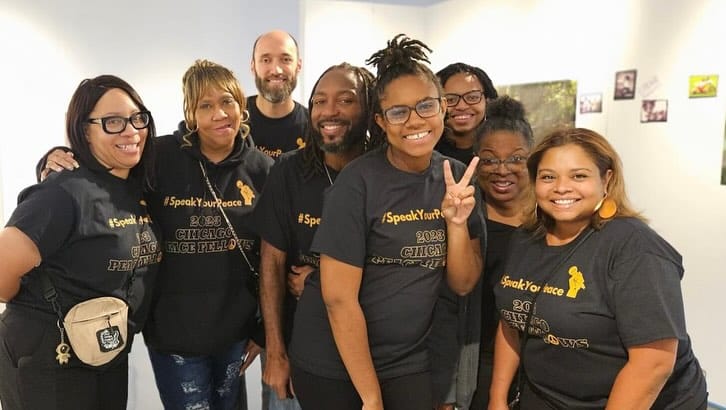
Throughout their fellowship, the 2023 Peace Fellows had a series of planning meetings where they set the scope of their Summer Projects: determining which beneficiaries to target, choosing potential community partners, and drafting a program. After determining projects and team members, the Peace Fellows met on their own to plan. “We were all sitting at the table and picking these projects, and our group felt it was really important for people to tell their story".
"In our community there are so many different things that go on, some of which are great and some of which are harmful and violent. We wanted to give people an opportunity to think about those things so that we can build on their experiences and make changes.”
- Nachelle Pugh
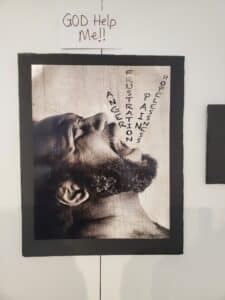
Centering Community Voices
The Speak Your Peace team sees storytelling as a way to show people from outside of their communities the challenges and triumphs of their neighborhoods. Nachelle elaborates, “Just looking [from outside] and trying to decipher what is going on is different from someone telling you what is going on. I think that’s what we were able to do with the storytelling at this event.” By providing a workshop and creative space for community members on the South and West side, Speak Your Peace aimed to center voices that are often ignored.
“To me it’s important to speak your peace, because if you don’t speak it, someone else will.”
- Kanesha Walker Amaro
By focusing on affirmative storytelling and highlighting the voices in the community, Speak Your Peace aimed to combat harmful narratives that are imposed from the outside.
Storytelling at the workshop showcased a variety of talents within the community with photography, art, poetry, music, and film working in unison to express a variety of voices. Hip hop artists, filmmakers, poets, and photographers from the community all had opportunities to present their talents. One of the featured artists was a filmmaker who started making films at the age of 17. At the event, the audience watched her documentary, filmed 7 years ago, which captures instances of police brutality that were spotlighted prior to the Black Lives Matter movement and shows the filmmaker’s view as an insider witnessing the violence. Another artist was a poet who used the space to share poems about her refusal to let any disabilities define her and allow her to center her experiences through poetry. The stories shared at Speak Your Peace were inter-generational and mixed-media, allowing for new connections to be generated between a range of communities.
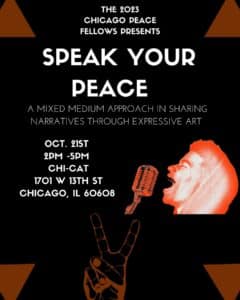
Mixed-Media Storytelling Build New Connections
Many of the Peace Fellows involved also had an opportunity to showcase their own artistic talents, which often do not have a chance to take center stage in their community work. For instance, Antwan McHenry curated a photography exhibit that showcased a variety of artists as well as his own work, which included a series of self-portraits he took during the height of the COVID-19 pandemic. Nachelle expressed admiration for his photographs, “Antwan, is an amazing photographer. […] Those pictures told a lot of stories of what was going on in his life, but probably also the lives of many others who were self-isolating. It was depression, it was confusion, it was chaos, it was sadness, it was the happiness at the end of the tunnel. All of those photos told the story of his experience.“ Kanesha, another 2023 Peace Fellow, also had the opportunity to share her poetry and bring in other local poets to perform.
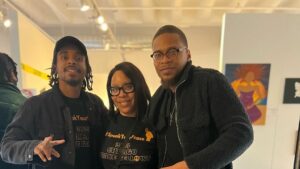
Speak Your Peace allowed for new connections to be made between artists and community activists across the South and West Sides. Reflecting on Speak Your Peace, Nachelle said that the most important thing accomplished was: “Building relationships with the community that was there."
"Working with the folks in our group, we got a chance to know each other, for real."
- Nachelle Pugh
We had been doing different workshops and activities, but we never really had a chance to [...] do the work that we do together and watch each other shine, and to be able to make suggestions with our personal experiences to help each other and make this event amazing. I think that’s the most important part and what I loved the most. Once we were done, everyone was like ‘yeah we gotta do this again and make it into something we do regularly’”. After the event, artists continued to connect and plan collaborations that will continue to center lived experiences for the world to experience and reflect on.
Visit to Haitian Art Museum of Chicago

First of its kind museum in the midwest celebrates the rich history of Haitian culture and the arts
We recently made a visit to the Haitian American Museum of Chicago (HAMOC) to coincide with their second anniversary. This was a significant milestone for Founder Elsie Hernandez, and also for the City of Chicago, as her plans for the museum dated back 12 years before finally being able to break ground in 2012.
The Museum is the first Haitian American Museum in the Midwest and was established to provide a space to promote Haitian history, culture and art. In particular, the Museum has partnered with the Haitian Creole Language Institute of New York to provide Creole language lessons.
The Museum is of particular significance to the Goldin Institute as we have partnered with organizations in Haiti to address the increase in violence against women following the earthquake in 2010. We look forward to supporting the Haitian American Museum as it grows and evolves into a premier cultural institution in Chicago!
[slide][img path="images/cesar_and_alejandro.jpg"]Museum Program Director Cesar Ramirez takes GI staffer Alejandro Di Prizio through the permanent collection on display at the HAMOC[/img] [img path="images/FullSizeRender.jpg"]Museum and Goldin Institute associates on the recent tour of the HAMOC.[/img] [img path="images/sculpture.jpg"]One of the many sculpture pieces on display at the HAMOC.[/img] [/slide]
